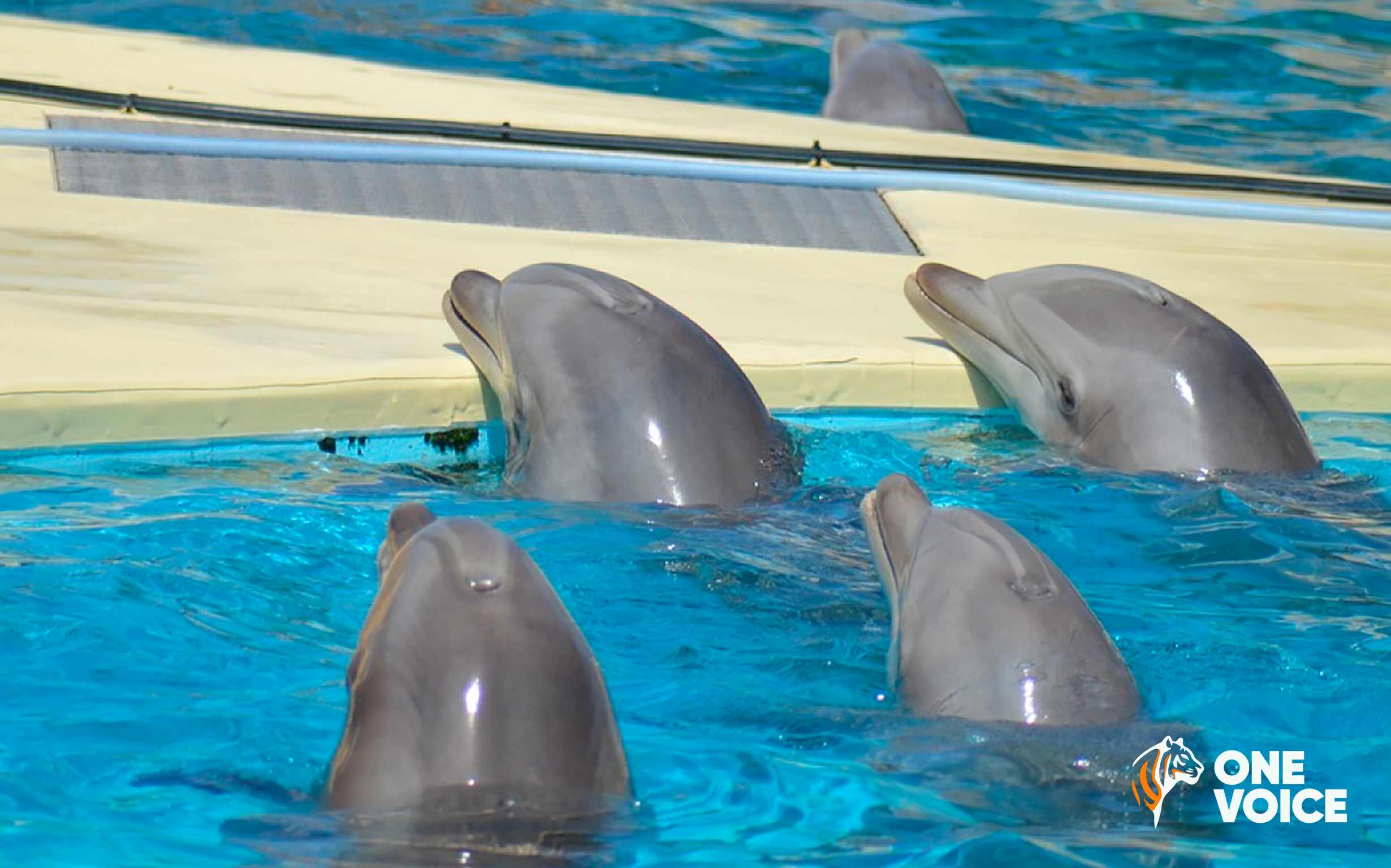

One Voice condemns the planned dolphinarium at Beauval Zoo: an unacceptable step backwards
While France made a commitment in 2021 to gradually phase out the captivity of cetaceans, the project at Beauval Zoo aims to create a “study and research centre” for dolphins. This facade of fancy words conceals a new dolphinarium, synonymous with prolonged suffering for dolphins, with the added prospect of the animals being bred and eventually transferred to other dolphinariums, even as far away as China.
In sanctuaries, all breeding is prohibited
According to publicly available information, Beauval is planning to build pools containing more than 30,000 m³ of artificial seawater in order to accommodate a large number of bottlenose dolphins. While the figures may seem impressive, they are far from sufficient to meet the physiological and behavioural needs of dolphins who travel freely up to 90 km per day in the ocean. Dr Pierre Gallego, a veterinarian and marine biologist specialising in cetaceans, attests that this project “is nothing more than a dolphinarium in disguise”, denouncing the exploitation of animal welfare to legitimise reproduction and captivity.
A move contrary to the spirit of the law and science
One Voice points out that the law passed in 2021 was supposed to mark the end of cetacean captivity in France. However, this project at Beauval pursues the logic of traditional dolphinariums, namely by planning for the birth of new individuals and exchanges between dolphinariums.
For Muriel Arnal, president of One Voice, “Beauval is trying to sell us the notion of a “land-based sanctuary”: pools of concrete disguised as a refuge. Tomorrow, will we have to accept permanent circuses, where tigers spend their lives in lorries?”
The association also denounces the pressure exerted by Marineland, which is threatening to transfer its dolphins to Spain. This strategy presents the French authorities with a false dilemma: choosing between captivity in Beauval and exile abroad, when a third option exists –that of genuine marine sanctuaries.
Marine sanctuaries, the only alternative for the welfare of dolphins
Since 2020, One Voice has been working with its partners on solutions involving sanctuaries that offer captive dolphins a semi-natural environment where they can relearn how to live without constraints and in complete safety. This model, which is supported by the European coalition Dolphinaria-Free Europe, is recognised as the only credible option for ensuring the welfare of dolphins without replicating the patterns of the captivity industry.
“Any relocation must be to a true sanctuary – one that prohibits breeding, public shows, close interactions, and trade in cetaceans. Anything less is just an upgraded dolphinarium” —Statement by the Dolphinaria-Free Europe coalition, of which One Voice is the French representative.
David Perpinan, a specialist veterinarian who has worked at the Loro Parque dolphinarium in Spain, states: “In Spain, three dolphinariums have recently closed, and this is the case throughout Europe. The Beauval Zoo, however, has decided to continue making dolphins suffer by breeding them and keeping them captive in concrete pools”.
A societal issue and a matter of political consistency
One Voice is calling on the Ministry for Ecological Transition to formally reject the Beauval Zoo project which contradicts the State’s commitment to protecting cetaceans. The association points out that it has already taken action and has succeeded in blocking the transfer of orcas from Marineland to Japan, and that it will continue to fight against any attempt to perpetuate captivity under misleading names.
“The public has not forgotten the fight for the cetaceans at Marineland. We will never be party to a new dolphinarium, even if it is “prettier”.” —Muriel Arnal, President of One Voice
One Voice demands:
that Beauval Zoo:
- honour its initial commitment to take in dolphins without any breeding or transfer except to marine sanctuaries when these are ready.
And that the authorities:
- refuse any authorisation to create a new dolphinarium, whatever its name;
- actively support projects for marine sanctuary;
- commit to a genuine rehabilitation policy for existing captive dolphins.
We are available for any further information or interviews.
Press Office
06 43 26 78 80